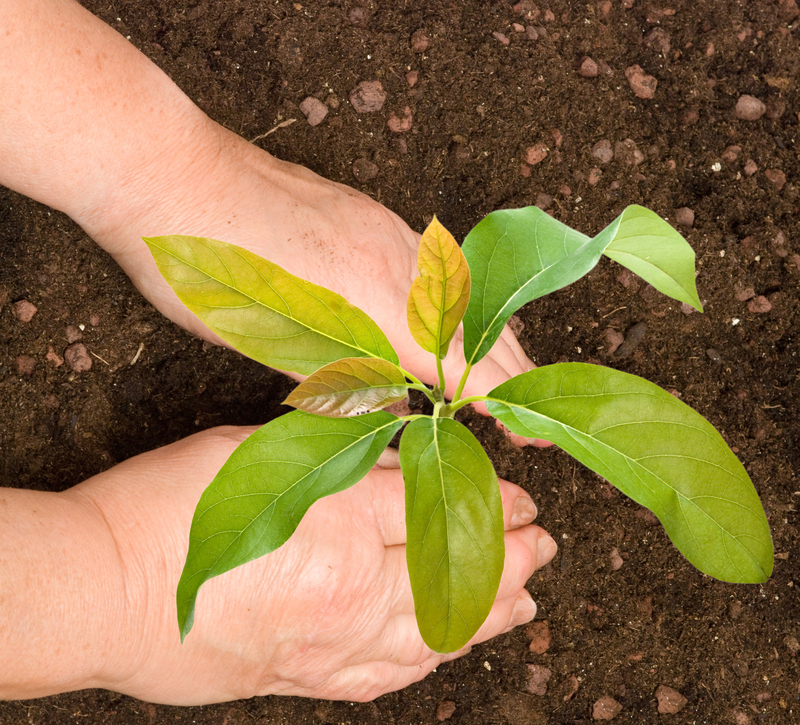Discover Budget-Friendly, Low Maintenance Garden Tips
Posted on 18/08/2025
Discover Budget-Friendly, Low Maintenance Garden Tips
Creating a beautiful outdoor space doesn't have to break the bank or consume all your free time. Many homeowners dream of having a lush and green garden but are deterred by the perceived costs and maintenance. However, with a little creativity and strategic planning, you can achieve a budget-friendly, low maintenance garden that enhances your home's curb appeal and provides a peaceful retreat. In this comprehensive article, we provide a range of smart gardening tips that won't overburden your wallet or your schedule.

Why Opt for Affordable, Easy-Care Gardening?
Prioritizing an inexpensive, self-sustaining garden offers many advantages beyond saving money:
- Low maintenance flowers and plants require less water, fertilizer, and pruning.
- You spend less time on upkeep and more time enjoying your outdoor space.
- It's possible to create a sustainable habitat that supports local wildlife and pollinators.
- You can avoid the high cost of landscaping services and frequent garden replacements.
Planning Your Low-Cost, Low Maintenance Garden
Before you start planting, careful planning is crucial to create a cost-effective, easy-to-care-for garden that thrives year after year. Consider the following steps:
1. Assess Your Garden Site
- Evaluate sunlight: Track sun and shade throughout the day. Most low care garden plants have specific light needs.
- Soil quality: Test your soil's pH and drainage. Amend with compost where needed; healthy soil means healthier plants.
- Space and layout: Sketch out your available area and identify existing features to work with or around.
2. Set a Realistic Budget
- Determine your maximum spend for plants, soil, mulch, and tools.
- List free or recycled materials you could incorporate to save money.
3. Focus on Simplicity
- Choose low maintenance design ideas such as grouped containers, raised beds, or large mulch areas.
- Keep plant selection straightforward to reduce watering, fertilizing, and pruning chores.
Top Budget-Friendly, Low Maintenance Gardening Tips
1. Choose the Right Plants
Central to any cost-effective, easy care landscape are the plants you select. Opt for:
- Native plants: These naturally thrive in your climate and soil, typically requiring less water and fertilizer.
- Drought-tolerant species: Perennials like lavender, sedum, and yarrow withstand dry conditions and are visually striking.
- Long-lived perennials: These return year after year, saving on plant replacement costs.
- Groundcovers: Creeping thyme or vinca help reduce weeding and keep the soil moist.
Pro Tip: Visit local plant swaps, nurseries, or community gardens for cuttings and split plants, often free or at low cost.
2. Simplify Your Lawn
Traditional lawns are costly and labor-intensive. Consider these low cost, low fuss lawn alternatives:
- Convert sunny areas to wildflower meadows or prairie grass patches.
- Replace grass with clover, moss, or other turf alternatives that need less mowing and watering.
- Use mulch or gravel pathways to reduce grassy areas that require frequent care.
3. Mulching--The Gardener's Secret Weapon
Mulching helps conserve moisture, smother weeds, and slow soil erosion--all cutting down on your garden workload. Cheap mulch options include:
- Grass clippings (be sure they're pesticide-free)
- Shredded leaves
- Pine needles
- Wood chips from local tree services
- Cardboard or newspaper covered with compost or straw
Apply mulch 2-4 inches deep around plants, being careful to keep it off stems to prevent rot.
4. Install Raised Beds or Containers
Raised beds and containers are cornerstones of hassle-free gardening:
- They minimize weeding and compacted soil.
- You can better control soil quality--fewer fertilizers and amendments are needed.
- Old buckets, barrels, or even repurposed bathtubs make affordable garden planters.
- Group containers together to create swathes of color with minimal effort.
5. Practice Water-Wise Gardening
Reduce your water bill--and the time you spend watering--by embracing smart solutions:
- Collect and use rainwater in barrels for irrigation.
- Water deeply but less often to encourage deep roots.
- Utilize a drip irrigation system or soaker hoses to direct water right to the plant roots.
6. Smart Design with Less Maintenance in Mind
Create a beautiful but easy-to-maintain garden layout:
- Group plants with similar water and sunlight needs together.
- Minimize intricate garden beds and opt for wide, straight paths to reduce edging and mowing.
- Use garden fabric under mulch to significantly cut down on weeding.
- Incorporate low maintenance structures such as benches or bird baths for visual interest.
Creative DIY Hacks for Cost-Effective, Low Maintenance Gardening
1. Utilize Recycled Materials
- Old pallets can become rustic vertical gardens or compost bins.
- Plastic bottles work as seedling starters or mini greenhouses.
- Broken pottery can serve as garden markers or unique mulch around plants.
Tip: Watch for local bulk waste collection days or ask neighbors for unwanted materials to repurpose in your garden.
2. DIY Composting
Homemade compost feeds your plants naturally and reduces dependence on store-bought fertilizers. Compost piles or bins can be made from:
- Wire mesh and wooden stakes
- Recycled plastic storage bins with air holes
- Cinder blocks or bricks stacked to form an open container
Mix grass clippings, leaves, kitchen scraps (no meat or dairy), coffee grounds, and shredded newspaper for a nutrient-rich product.
3. Propagate Your Own Plants
- Take stem cuttings from existing plants to grow new ones for free.
- Divide perennial plants every few years to fill gaps in your garden at no cost.
- Participate in local seed or plant exchanges to build your collection inexpensively.
Seasonal Low Maintenance Garden Care Tips
Spring
- Mulch garden beds before weeds can get established.
- Plant drought-tolerant annuals and perennials.
- Top dress beds with homemade or store-bought compost for a nutrient boost.
Summer
- Water deeply in the early morning to minimize evaporation.
- Check mulch levels and replenish as needed to conserve moisture.
- Deadhead flowers sparingly to encourage more blooms with minimal effort.
Autumn
- Collect fallen leaves for mulch or composting.
- Plant spring-flowering bulbs for low maintenance color next year.
- Dividing overgrown perennials now ensures healthy, stress-free plants come spring.
Winter
- Protect perennials with an extra layer of mulch or straw.
- Clean and store garden tools to prolong their life.
- Plan next season's plant purchases to capitalize on sales and deals.

Common Mistakes to Avoid in Budget Gardening
- Overplanting: Crowded plants compete for resources and invite disease.
- Choosing high-maintenance species: Avoid plants that require constant watering, pruning, or pest control.
- Neglecting soil prep: Skipping compost can lead to poor plant growth, increasing future costs.
- Impulse buying: Stick to your garden plan; spontaneous purchases often result in wasted resources.
Conclusion: Start Creating Your Affordable, Easy-Care Garden Today
Budget-friendly, low maintenance gardening is within reach for anyone--whether you have a tiny urban patio or a large suburban yard. By following the tips and strategies outlined above--
- choosing the right native plants,
- using mulch,
- recycling materials,
- building raised beds or containers,
- and planning a smart, efficient layout
--you can make your dream outdoor space come to life.
Remember, a beautiful garden doesn't have to be expensive or high maintenance. With a bit of effort up front and a creative approach, you'll enjoy a welcoming garden that rewards you with color, tranquility, and pride season after season--without straining your budget or your busy schedule.
Ready to transform your space? Start small, use these cost-effective, low effort gardening tips, and watch your outdoor haven flourish!
Latest Posts
Safeguarding Your Garden Against Extreme Weather Conditions
Discover the Top 9 Hedges for Rapid Privacy Growth
Transform Your Outdoor Space with Tranquil Zen Garden Ideas

